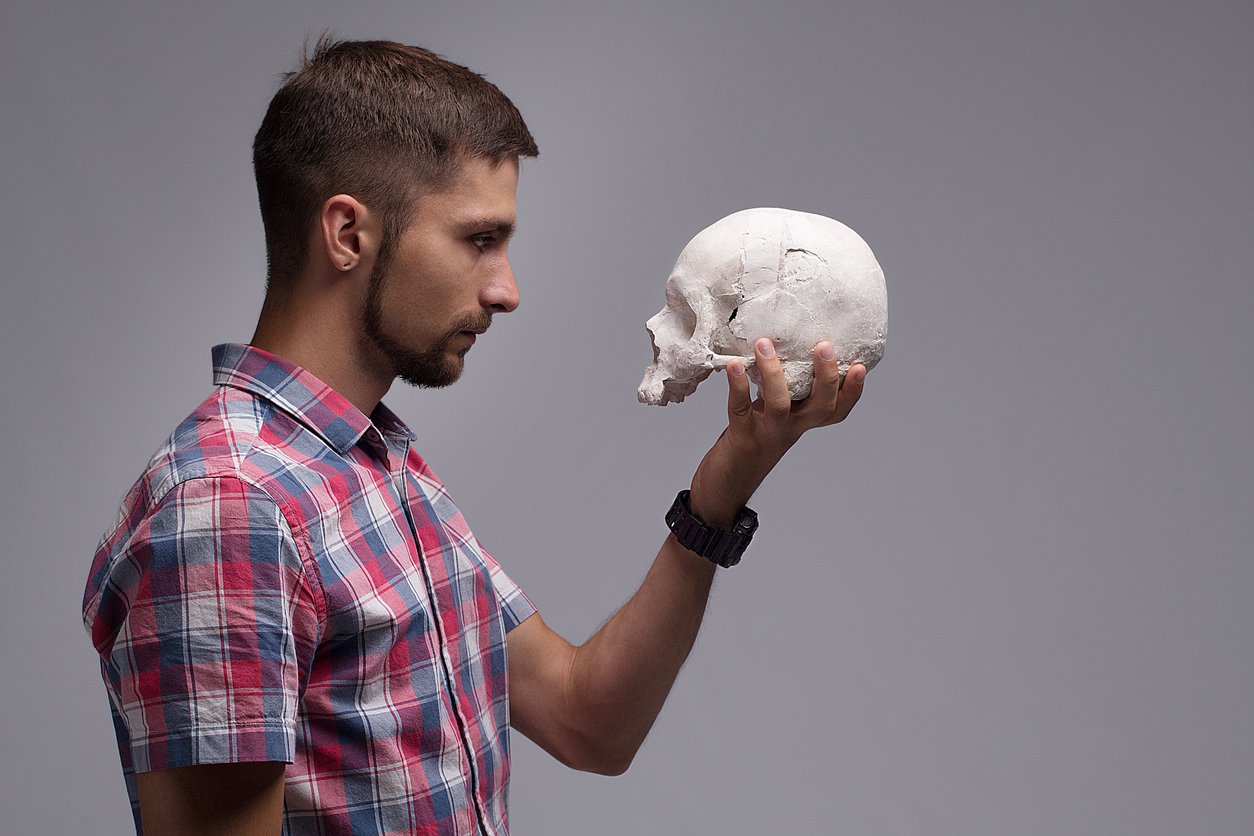Corona in 3 acts: Your organisations playbook
Leadership Blog | 5 minute read

Written by Achieve Breakthrough

Some like-minded thought leaders came up with a great analogy this week; the Coronavirus pandemic is unfolding like a play in three acts. Right now, we’re almost through Act 2 and we’ve got to determine which way this goes.
Act 1 – How it all started
It all started on a sunny day. We had big ambitions, a strategic plan, a clear direction. As leaders and organisations we knew who we were, what we did and how we worked. We thought there were creases to iron out, and naturally we complained once in a while, but we understood the game and played it with energy and commitment.
None of us saw the looming threat; invisible, unpredictable and deadly. It wouldn’t have seemed plausible even if we were warned. The scale and speed of change would have seemed too significant; too catastrophic to plan for.
And then came the bombshell. The unexpected shock, and then realisation that there was a serious ‘baddie’ out to get us. Coronavirus was a new word to most of us in January but within weeks it was effecting every part of our lives and organisations. Threatening to rob us of our sunny day and challenge everything we thought was certain.
Act 2 – The Tussle
In all great stories, comes the moment of struggle. The tug of war between good and evil. The moment it can go either way.
Our Act 2 battle has revealed polarity everywhere as we’ve grappled to regain control and make the right moves. The planet vs. people, livelihoods vs. lives, courage vs. fear, creativity vs. reactivity. There are dilemmas, decisions, risks. And an ever widening gap between those industries experiencing unprecedented success (web conferencing, pharma, Amazon!) and those struggling to survive (aviation, high-street retail). There is light and dark everywhere. So much of our old world thinking has been challenged in the wake of the virus; the way we would usually to do things simply doesn’t work right now. Organisations and leaders have been forced to trust their people without reservation, to adapt, innovate and be more flexible than we ever imagined. To smash assumptions about what we do, how we do it and at times; even why. And it’s not all been bad, in fact a lot of it has been great.
To quote Boris Johnson, Coronavirus is a ruthless mugger that we’ve wrestled to the ground and now we’re in the moment of most opportunity but also most risk. Perhaps the biggest risk is that we try to get back to the way things were. Anyone with children might recognise the biggest shift for a new parent is when you stop trying to get your life back to how it was before, just with a baby in tow! When you abandon your old world, old rules and old expectations and accept that they're transformed forever. Only from that moment can you really start to thrive because you’re empowered to create new rules to win at the new game. From that vantage point it’s possible to generate and embrace the new opportunities and possibilities ahead. Organisations face a dilemma; to try and get back to the way things were or to accept that our old world has gone and it’s time to create some new game rules to start winning again. There is only one viable path to take; transformation is a one-way street. As we enter the final act, we must equip ourselves for victory by accepting what has changed and re-inventing our organisations to be fit for the new world.
Act 3…is still unwritten, and now we must pick up the pen.
We’ve managed to steady the ship so now we must shift from being an actor in the play, to being the author. Taking the lead to deliver a good ‘ending’ as leaders and as organisations. To avoid writing a tragedy we need to shift from being at the effect of the situation to taking 100% responsibility for how we choose to respond, adapt and thrive in the new world.
There are still some big unanswered questions, and so much yet to play for. When will we be able to travel again? What will our businesses offer to fluid and uncertain markets? How will we choose to work and team longer term? How do we build a better, more sustainable, more enjoyable, more profitable future?
The role of leaders
Leaders can start by capturing and keeping everything that’s better in the new world. More freedom to work from home, a better work/life balance, empowering and trusting your people to be committed and hard-working without watching over them, dynamic manufacturing; the list will be endless. There will be insights from every business and every sector that have revealed better ways of doing things. In many cases, employees have really welcomed the changes and would gladly adopt them long term. These are the early quick wins and leaders must codify and consolidate them, in conversation with their people.
As well as capturing what’s working, we need to start considering what else is possible in our new world. Standing at this new horizon, what would be a breakthrough for you, your teams and your business? What are the new rules, markets and opportunities? How can we innovate and transform further to write our own future at the dawn of the new world?
You’re either full-on or full-off, don’t rely on a hope strategy; be the author of what happens next:
- Share your story. Capture every anecdote, good practice, learning and breakthrough you’ve had throughout the pandemic. Codify them, embed them and speak them until they become the norm.
- Collaboration will be key to creating new offers and solutions. Be open to challenging and reinventing what your organisation does, how it meets or creates demand and who you can work with to achieve this.
- Take responsibility. You are the author of what happens next. Rather than commentate on what’s wrong or missing, empower yourself and others to do whatever it takes. Accept what has changed and the constraints we must live with, whilst bravely innovating and expanding your thinking in order to win again.
Published 28/05/2020
Subscribe by Email
Achieve more breakthroughs. Get expert leadership ideas, insights and advice straight to your inbox every Saturday, as well as the occasional bit of news on us, such as offers and invitations to participate in things like events, webinars and surveys. Read. Lead. Breakthrough.
Tags
- Change management
- Competitive strategy
- Collaboration
- Organisational culture
- Leadership development
- Succession planning
- Team development
- Creativity
- Behaviour change
- Entrepreneurship
- Managing yourself
- Work-life balance
- Decision making
- Motivating people
- Organisational values & purpose
- Managing uncertainty
- Strategy execution
- Strategic thinking
- Strategy
- Managing people
- High performing teams
- Productivity
- Innovation
- Communication
- Mindset
- Breakthrough Thinking
- Career planning
Related posts
Leadership Blog
Why organisational agility starts with mindset, not operating models
Achieve Breakthrough | 17/02/2026
Leadership Blog
Curiosity as culture: The social glue of high-performing teams
Achieve Breakthrough | 10/02/2026
Leadership Blog
Why better questions build better teams: The cultural case for curiosity
Achieve Breakthrough | 03/02/2026
Leadership Blog
Leading with the handbrake off: Why curiosity is a strategic operating system for uncertainty
Achieve Breakthrough | 27/01/2026

